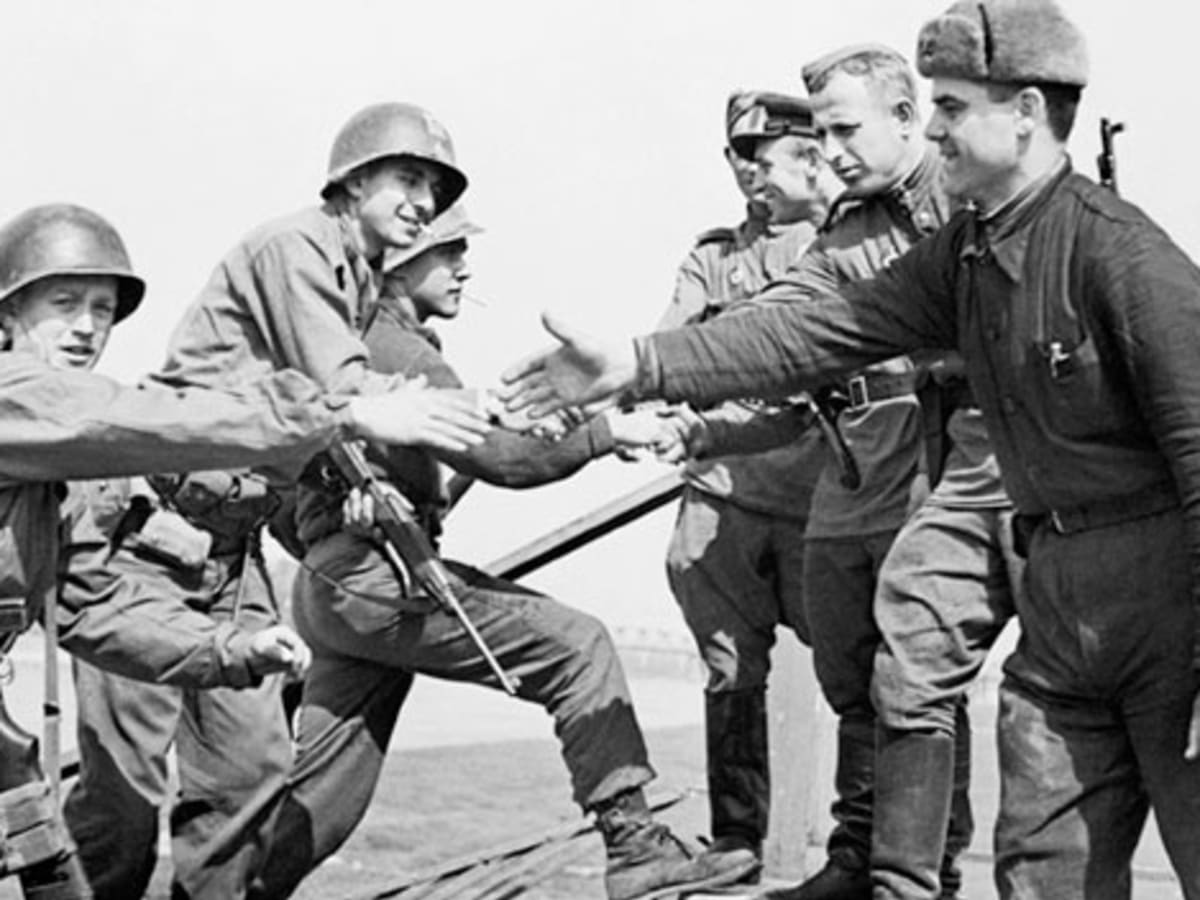
April 25 marked the 77th anniversary of the “Oath of the Elbe,” when U.S. and Russian soldiers embraced in a historic meeting on the Elbe River in Torgau, Germany, to mark the final end of the Third Reich and pledge mutual understanding, empathy and peaceful relations between the U.S. and Soviet Union
Despite today’s hysterical hostility towards Russia—fomented by U.S. corporate interests, implemented by opportunistic politicians, and enflamed by a complicit mass media—the Russian and American people have a long tradition of friendship and mutual support.
A Suppressed History
Long forgotten is a history of U.S.-Russian cooperation that goes back to the era of Catherine the Great who supported the American revolution.
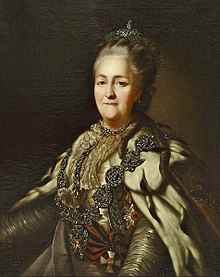
Believing that the American colonists were right, Catherine refused a request by King George for 20,000 Russian troops to help crush the revolution. King George subsequently tried to bribe Catherine by offering an island of Menorca in the Mediterranean Sea in exchange for convincing France to exit the war and thus forcing the American rebels to fight alone. Again, however, the offer was turned down.
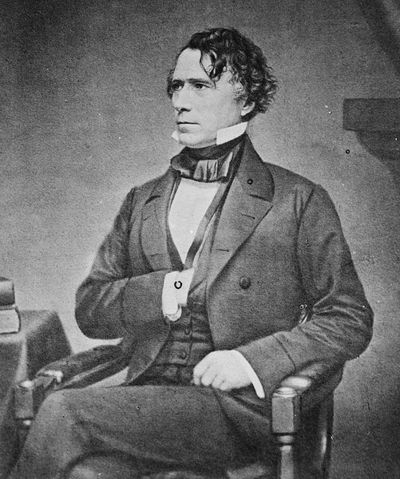
During the Crimean War in the 1850s, when Russia was invaded by Britain, France and Turkey, President Franklin Pierce sent arms and munitions, as well as engineers and doctors, to assist the Russians.
Russia returned the favor during the American Civil War (1861-1865), when Abraham Lincoln called for Russian help because Great Britain and France began supporting the Southern Confederacy in an attempt to destabilize and weaken the United States.
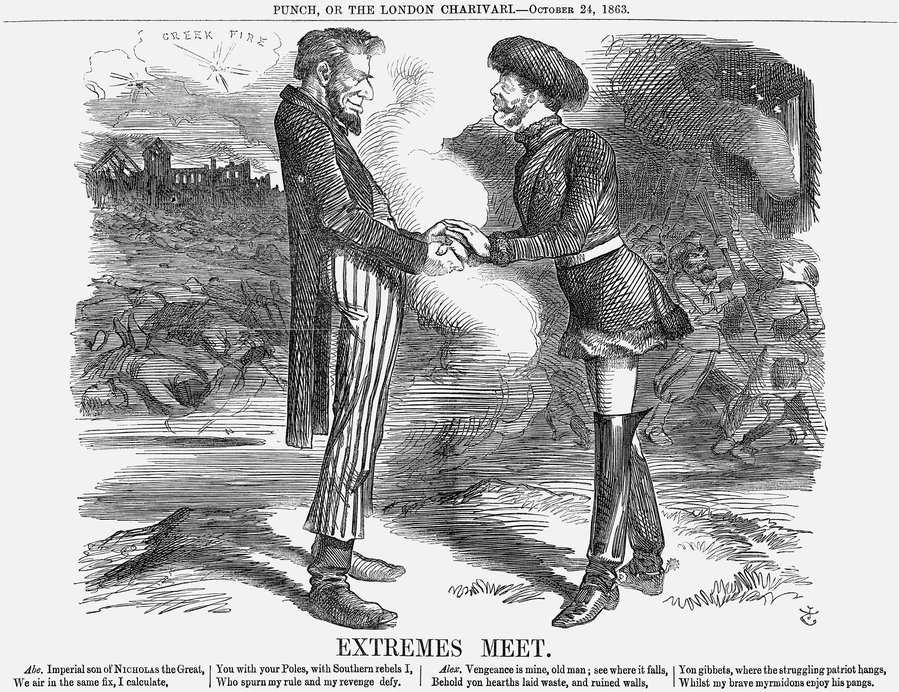
The Russians sent the Imperial Navy’s flagship, Alexander Nevsky, along with four other vessels into New York harbor four days after the Union defeat at the Battle of Chickamauga as a warning for the British and French to back off—which they did.[1]
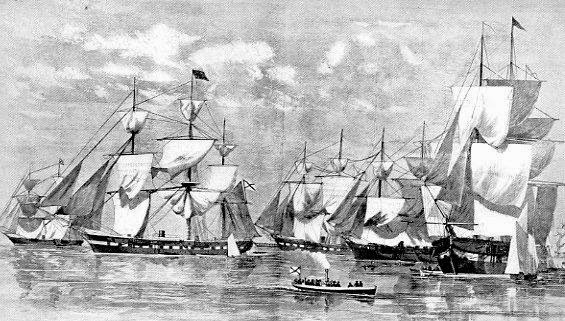
Secretary of the Navy Gideon Welles wrote in his diary afterwards: “God Bless the Russians,” while future Supreme Court Justice Oliver Wendell Holmes, Jr., a Union army lieutenant, wrote a song about “the nation who was our friend when the world was our foe.”[2]
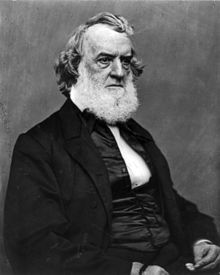
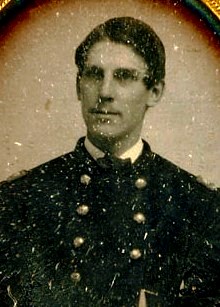
In Lincoln and the Russians (1952), historian Albert A. Woldman wrote:
“New York City, gaily bedecked with American and Russian flags, bubbled over with sumptuous hospitality for the Muscovite naval officers wearing gold laced chapeaux [who] were cheered as they were being driven up Broadway. The city’s merchants and businessmen gave a banquet in their honor at the Astor House and there was a Grand Ball for the officers at the Academy of Music [which] according to the editor of Harper’s Weekly was undoubtedly the greatest ball every given in this country, with excepting the ball to the Prince of Wales.”[3]
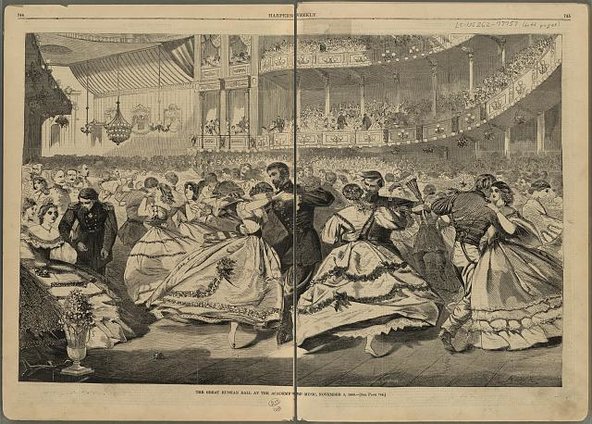
Harper’s Weekly specified that the feting of the Russian sailors had “a political significance….Every [U.S.] citizen felt bound to do what in him lay to testify to the Russians our sense of gratitude for the friendly manner in which Russia has stood by us in our present struggle, while the Western powers have done not a little to work our ruin.”[4]
How quickly we forget!
Lincoln was a visionary who understood the benefits of close diplomatic relations with the Russians. The great man of letters, Leo Tolstoy, praised Lincoln as “a man of whom a nation has the right to be proud; a Christ in miniature, a saint of humanity whose name will live thousands of years in the legends of future generations.”[5]
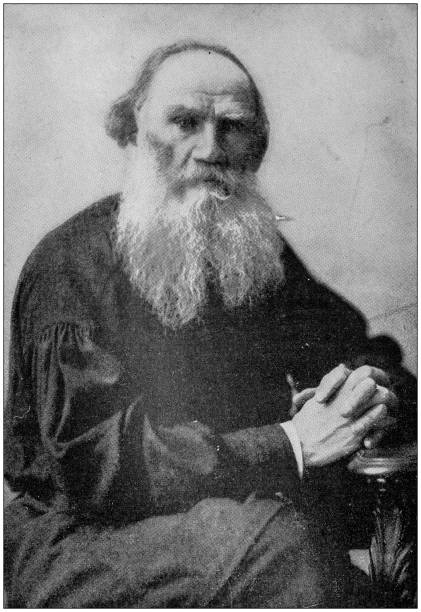
Tolstoy would have had similar high regard for Franklin D. Roosevelt and his Vice President Henry A. Wallace (1941-1945), who cultivated the U.S.-Soviet alliance in World War II against Nazi Germany. A trip to Russia in 1944 shaped Wallace’s aim to take the U.S.-Soviet wartime alliance into peacetime, with “our two great nations working in close harmony.”
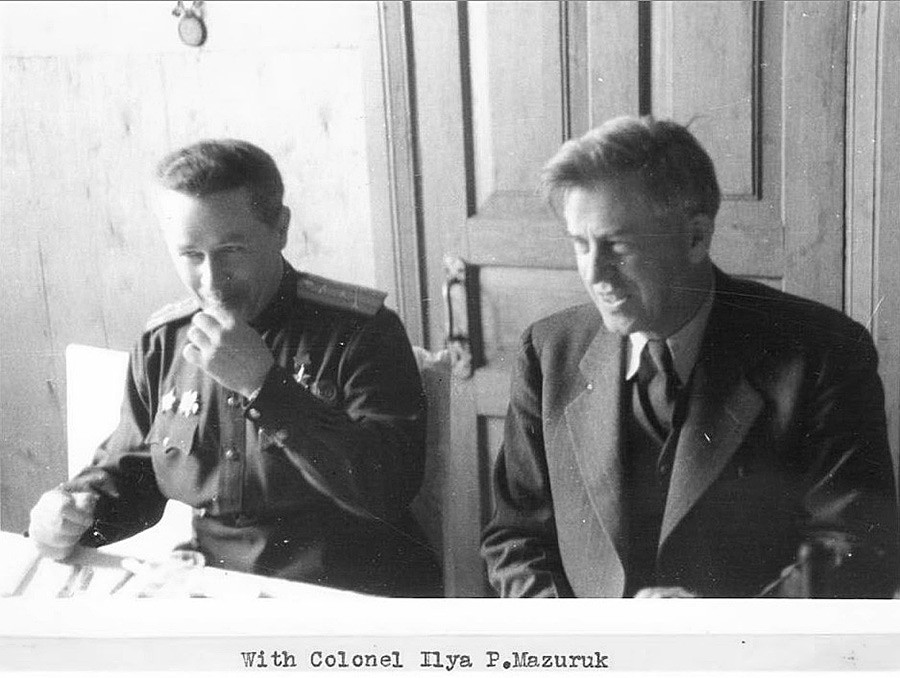
Folk singer Woody Guthrie captured the wide appreciation for Russia’s fighting prowess in World War II with his ode to a Russian sniper, Lyudmilla Pavilichenko, who allegedly killed over 300 Nazis. Woody wrote:
“Miss Pavilichenko’s well known to fame;
Russia’s your country, fighting is your game;
The whole world will love her for a long time to come, For more than three hundred Nazis fell by your gun.”
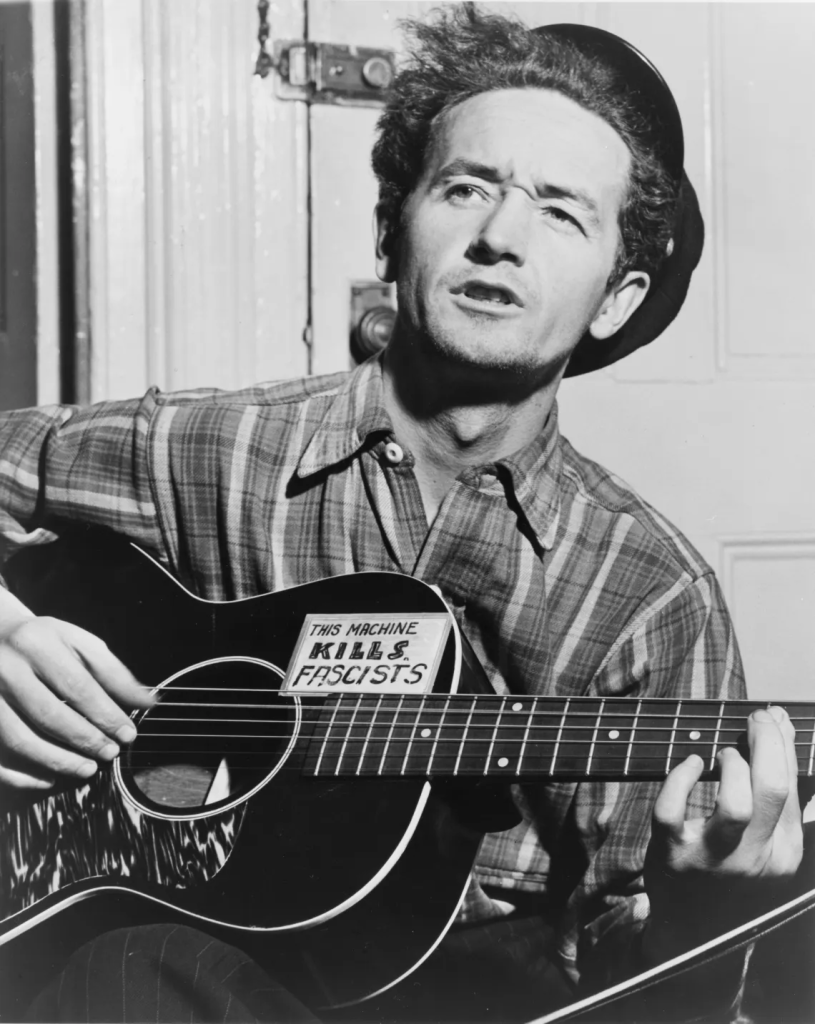

The possibility for peaceful U.S.-Russian relations after World War II was sabotaged when Wallace was ousted from the vice-presidency at the 1944 Democratic Party convention in Chicago in a coup and replaced with Harry S. Truman, who betrayed Roosevelt’s legacy as president by starting the Cold War.
Of course, none of the above ignores the reality that the Russian-U.S. relationship has not always been ‘wine and roses.’
Toward the end of WW I, U.S. President Woodrow Wilson joined with Britain, France and Japan to launch a military invasion of Russia that included 8,500 American soldiers. It was originally intended to block the German war effort, but after the 1917 Russian Revolution, the Allied forces stayed on until 1920 in a futile attempt to overthrow Russia’s Bolshevik government.
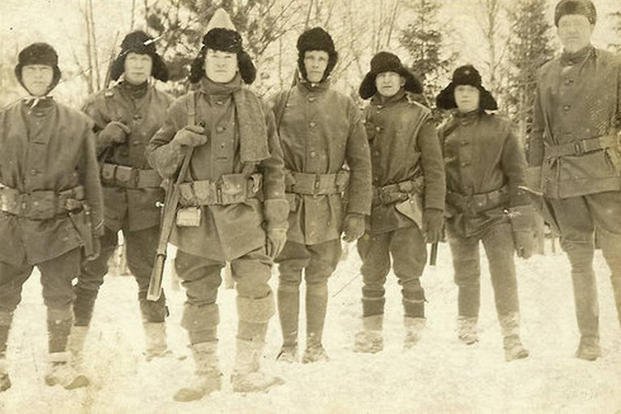
And after World War II, U.S. government propaganda cynically transformed Russia into a threatening demon to justify the transformation of America into a permanent military economy for the enrichment of the military-industrial complex.
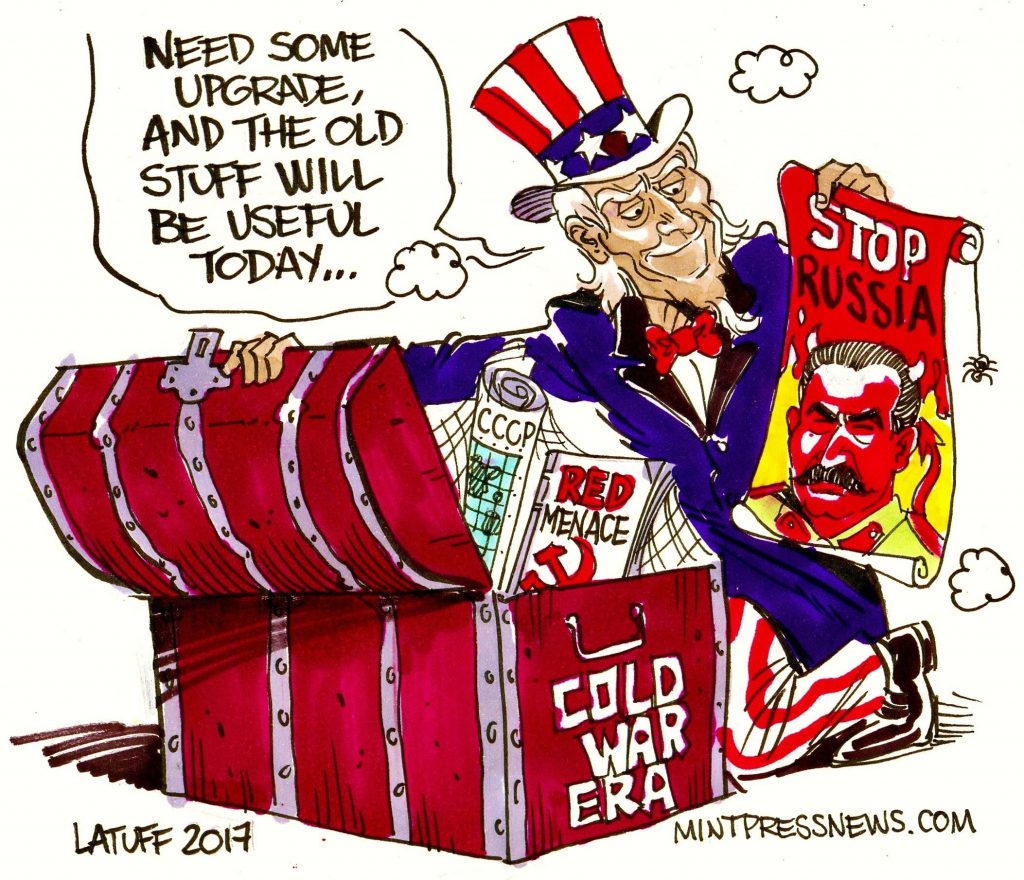
Nevertheless, it would be a good idea if the lost history of U.S.-Russian cooperation were to be remembered at this dark historical moment, since the fate of the world may depend on it.
Joseph Polowsky and the Elbe River Spirit
A person with his own private reason for remembering this history of Russian cooperation was a Chicago taxi driver named Joseph Polowsky.
Every year on April 25, prior to his death from cancer in 1983, Polowsky would stand on the Michigan Avenue bridge and pass out leaflets calling for a halt to the spread of nuclear weapons and Cold War.
When approached by passersby, he would tell them about the historic meeting between American and Russian soldiers at the end of World War II, along the Elbe River in Central Europe.
Polowsky didn’t just know the details of the meeting, which marked a crucial step toward the end of the war, he had taken part in it.
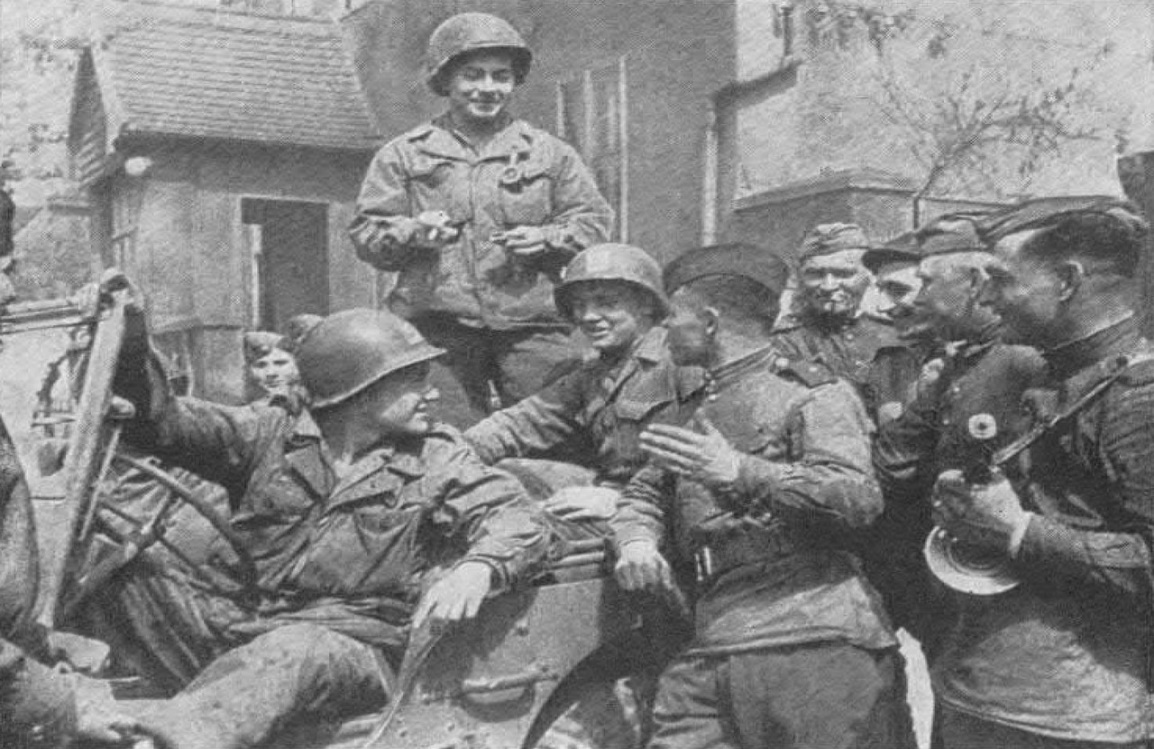
A Taft Republican who had served as a rifleman in the Sixty-ninth Division of the First U.S. Army, Polowsky recalled crossing the Elbe River at 11:30 AM on the historic day, and then, over drinks of Russian vodka and beer, pledging with Russian soldiers, who greeted the Americanski’s with open arms, to do everything in their power to prevent future wars.
As more men joined them, the celebration continued over a banquet in the East German town of Torgau. A toast was made to “the late President Roosevelt, President Truman, Prime Minister Churchill, Marshall Stalin, and everlasting friendship between us all.”
Polowsky recalled that at the banquet “we drank and there were accordions and balalaikas and music and dancing. They played American songs [and] Russian girls were dancing. It was a strange sight, I was so captivated by the event that it took possession of me for the rest of my life.”

The U.S. Army’s Stars and Stripes magazine devoted an entire issue to the Elbe River linkup under the headline “Yanks Meet Reds.” Correspondent Andy Rooney, later of 60 Minutes fame, wrote that “you get the feeling of exuberance, a great new world opening up.”
Conveying a similar sentiment, Russia’s famed anti-Stalinist poet Yevgeny Yevtushenko wrote in his poem, “In a Steelworker’s Home”: “True, the great ocean, the Pacific, is between us. But we will swim it; no ocean so great it cannot become an Elbe! . . . Our common Elbe, we must not betray, Russia and America swim closer.”

Today, in the darkest of times as the prospects of World War III and nuclear armageddon loom ever larger, Polowsky’s son, Joseph Wolff, is carrying on the tradition and spirit of the Elbe River meeting.
On the seventy seventh anniversary of the linkup, Wolff, called for a renewal of the Elbe River oath at a commemorative Zoom event.
The event was sponsored by the Eurasian Peoples’ Assembly and Edward Lozansky, president of the American University in Moscow (now Moscow International University), who has long promoted U.S.-Russian friendship.
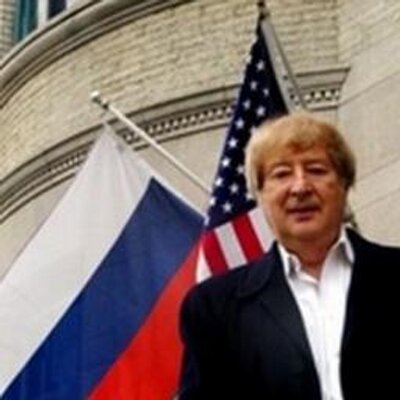
Wolff reminded the audience that the meeting between U.S. and Soviet troops on the Elbe River on April 25, 1945, marked the end of the Third Reich.
The troops made a pledge for mutual understanding, empathy and peaceful relations between the U.S. and Soviet Union which, Wolff said, his father worked for for the rest of his life.
Today, with U.S.-Russian relations at a breaking point, Wolff said that the time to renew the Elbe oath is now.
“The threat of World War III is real and the stakes are too high,” he said. “With the conflict in Ukraine, the threat from the pandemic and climate change, the world needs the U.S. and Russia to work on the same team.”
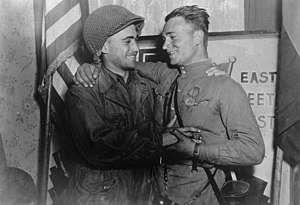
“All of us are part of one race, the human race. We need to set our grievances aside and have our two great nations work together for the human race to flourish for hundreds of years into the future.”
Despite the strenuous efforts by Biden and his surrounding coterie of war hawks and imperialist profiteers to paint Russia as a fearful enemy seeking world conquest, perhaps the spirit of Polowsky and the Elbe River oath might yet prevail if people mobilize in support of it.

-
See Albert A. Woldman, Lincoln and the Russians (Cleveland: World Publishing Company, 1952), 135. The Battle of Chickamauga took place in September 1863. ↑
-
Woldman, Lincoln and the Russians, 136, 248. The Russian czar had his own interests for sending the ships, including seeking American support as the Russian army crushed a Polish insurrection. ↑
-
Woldman, Lincoln and the Russians, 137. ↑
-
Woldman, Lincoln and the Russians, 140. ↑
-
Woldman, Lincoln and the Russians, 251. ↑
CovertAction Magazine is made possible by subscriptions, orders and donations from readers like you.
Blow the Whistle on U.S. Imperialism
Click the whistle and donate
When you donate to CovertAction Magazine, you are supporting investigative journalism. Your contributions go directly to supporting the development, production, editing, and dissemination of the Magazine.
CovertAction Magazine does not receive corporate or government sponsorship. Yet, we hold a steadfast commitment to providing compensation for writers, editorial and technical support. Your support helps facilitate this compensation as well as increase the caliber of this work.
Please make a donation by clicking on the donate logo above and enter the amount and your credit or debit card information.
CovertAction Institute, Inc. (CAI) is a 501(c)(3) non-profit organization and your gift is tax-deductible for federal income purposes. CAI’s tax-exempt ID number is 87-2461683.
We sincerely thank you for your support.
Disclaimer: The contents of this article are the sole responsibility of the author(s). CovertAction Institute, Inc. (CAI), including its Board of Directors (BD), Editorial Board (EB), Advisory Board (AB), staff, volunteers and its projects (including CovertAction Magazine) are not responsible for any inaccurate or incorrect statement in this article. This article also does not necessarily represent the views the BD, the EB, the AB, staff, volunteers, or any members of its projects.
Differing viewpoints: CAM publishes articles with differing viewpoints in an effort to nurture vibrant debate and thoughtful critical analysis. Feel free to comment on the articles in the comment section and/or send your letters to the Editors, which we will publish in the Letters column.
Copyrighted Material: This web site may contain copyrighted material the use of which has not always been specifically authorized by the copyright owner. As a not-for-profit charitable organization incorporated in the State of New York, we are making such material available in an effort to advance the understanding of humanity’s problems and hopefully to help find solutions for those problems. We believe this constitutes a ‘fair use’ of any such copyrighted material as provided for in section 107 of the US Copyright Law. You can read more about ‘fair use’ and US Copyright Law at the Legal Information Institute of Cornell Law School.
Republishing: CovertAction Magazine (CAM) grants permission to cross-post CAM articles on not-for-profit community internet sites as long as the source is acknowledged together with a hyperlink to the original CovertAction Magazine article. Also, kindly let us know at info@CovertActionMagazine.com. For publication of CAM articles in print or other forms including commercial internet sites, contact: info@CovertActionMagazine.com.
By using this site, you agree to these terms above.
About the Author

Jeremy Kuzmarov holds a Ph.D. in American history from Brandeis University and has taught at numerous colleges across the United States. He is regularly sought out as an expert on U.S. history and politics for radio and TV programs and co-hosts a radio show on New York Public Radio and on Progressive Radio News Network called “Uncontrolled Opposition.”
He is Managing Editor of CovertAction Magazine and is the author of six books on U.S. foreign policy, including Obama’s Unending Wars (Clarity Press, 2019), The Russians Are Coming, Again, with John Marciano (Monthly Review Press, 2018), Warmonger. How Clinton’s Malign Foreign Policy Launched the U.S. Trajectory From Bush II to Biden (Clarity Press, 2023); and with Dan Kovalik, Syria: Anatomy of Regime Change (Baraka Books, 2025).
Besides these books, Kuzmarov has published hundreds of articles and contributed to numerous edited volumes, including one in the prestigious Oxford History of Counterinsurgency .
He can be reached at jkuzmarov2@gmail.com and found on substack here.



[…] Source: Why Should Russia and the United States Be Enemies When They Have a 240-Year History of Internationa… […]
In WW II the US and Russia were allies despite having fundamental ideological differences. In WW III they will be enemies, a conflict both are hurtling towards. They do not see the pattern of history and are nihilistically set upon entering a conflagration they don’t want, and certainly don’t need.
https://patternofhistory.wordpress.com/
In 1991, James Baker promised Mikhail Gorbachev that NATO jurisdiction would not move one inch eastward. This is documented in multiple locations in the National Archive at Georgetown University.
In 2008, at the NATO Summit in Bucharest, George W. Bush insisted that NATO make a statement that Georgia and Ukraine would be part of NATO and the EU. This offended the Russians.
Barack Obama appointed Joe Biden as his point man for Ukraine. On November 21, 2013, President Viktor Yanukovytch declined to sign an association agreement with the EU, in favor of a better deal with Russia. Obama gave Victoria Nuland the green light to unleash the National Endowment for Democracy (NED) at the Maidan. On February 14, 2014, the US-backed junta overthrew the democratically elected government and installed a puppet regime that would answer to Joe Biden. The US Democrats controlled Ukraine externally from that point forward, embezzling billions of dollars, using Ihor Kolomoisky to launder the money, and stuffing their pockets as well as funding campaign and election expenses with dark money. The US Department of State, the US Embassy in Ukraine, and FBI Supervisory Agent Karen Greenaway launched a massive campaign to cover up the corruption of Biden and the Democrats. After the 2016 general election, Hillary Clinton mobilized US assets in Ukraine to launch a campaign to get rid of Donald Trump. She remained incensed, stark raving mad, about the imaginary Russian collusion with Donald Trump that she believed cost her the presidency. On January 6, 2021, the Democrats called in Ukrainian operatives to agitate protesters at the US Capital.
Part of the hatred for Russia makes sense considering that the Democrats were pilfering billions from Ukraine and they didn’t want competition from Russian oligarchs. That’s why they panicked when Yanukovytch
So, they stirred up hatred for Russia using alliances with far right organizations like Azov Battalion and other Nazi affiliated groups.
Insane and unjustified Hatred for Donald Trump and Vladimir Putin fueled the Russia hoax, preventing Donald Trump from any association with Vladimir Putin. The Democrats harbor an unjust hatred for Russia because Hillary Clinton does not believe she could have lost the election unless Russia helped Donald Trump cheat to win.
There is no benefit that can come from discord with Russia. There is everything to gain from good relations with Russia, but it’s going to take a lot of work if it is even possible. I suggest that we expect nothing, but start a campaign to
Excellent piece, Jeremy. To me, the title question is somehow misleading. I’d have asked “Why Should Russia and the United States PRETEND TO BE Enemies When They Have a 240-Year History of International Friendship and Support?” the players of two hockey teams can be the best of friends, but once a game was agreed, each team has to ‘play’ the role of the ‘enemy’. remember Russia and America sit together on the War Committee (Security Council) of the International War Club (United Nations). UK is on the USA team, whilst China complements the Russian tam. France is the arbiter. Countries that support their war plans (Angola, Pakistan, Nigeria, Colombia, Saudi Arabia, are invited fo a year- membership. All very well organised, under the ‘patronage and watchful supervision’ of their War Director, known as Secretary General’. Without such combined international effort, wars couldn’t happen.